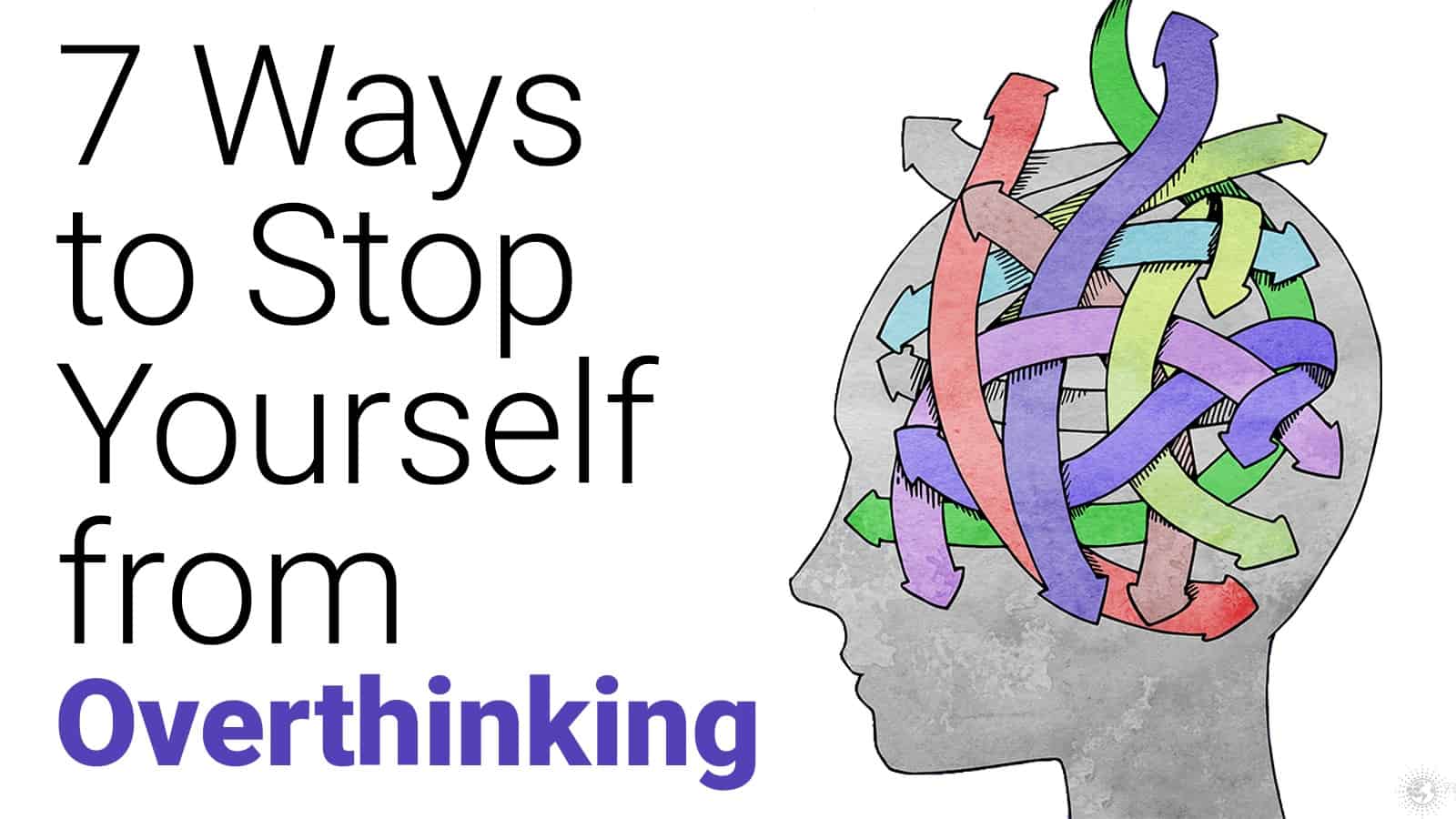Picture a pot of water on the stove. Initially, the surface is calm, but tiny bubbles form at the bottom as the heat intensifies. Gradually, they rise, becoming more vigorous and numerous until the water is in a turbulent, boiling frenzy, threatening to spill over. Our minds, much like that pot, can become overwhelmed with thoughts. At first, these ruminations might be subtle and manageable but left unchecked, they can amplify, leading us to an agitated state of overthinking.
In these moments, we risk boiling over, clouding our judgment, and impairing our decision-making. In this article, we’ll explore seven effective strategies to turn down the heat, helping you find clarity and prevent the tumultuous boil of overthinking.
“Analysis Paralysis”
To overthink something is to allow the topic to linger for far too long in your mind. Often, the result is poor judgment, elevated stress, and inaction.
While it is crucial to think through something, regularly taking action is also critical. The inability to act cripples many of the world’s great minds, effectively rendering their brilliant and innovative ideas useless. These are the folks for whom the axiom, “You’re too smart for your own good,” was invented.
The term “analysis paralysis” describes perfectly – in just two words – the dangers of overthinking. When we overanalyze anything, we tend to stress out. As a result, the body releases the stress hormones epinephrine and cortisol. Because of the flood of stress hormones, we find it much more challenging to think clearly – sometimes, we just freeze up.
It isn’t an exaggeration to say that overthinking can ruin someone’s life. Ruminating on good or bad thoughts can halt someone from progressing and moving forward. This leads to underachievement, frustration, and even mental health conditions like anxiety and depression. Thus, it is critical that we halt the flood of seemingly never-ending thoughts, especially if they are negative.
Here are 7 ways to stop yourself from overthinking:
Here are some tips to help control those thoughts.
1. Become Self-Aware of Your Overthinking
To stop any behavior, we must be aware that it is occurring in the first place. Overthinking is a flood of thoughts that can manifest as physical and mental symptoms, including anxiety, irritability, and lack of concentration. Whenever you notice a stream of disconnected or anxiety-inducing thoughts, cut them off.
2. Distract Yourself
When it comes to overthinking, distract yourself by actively disengaging from stressful thoughts. If you find it hard to get back into the swing of positive thinking, distract yourself by taking a break, reading, or playing a game.
3. Don’t Suppress Your Thoughts
Anyone with an anxiety disorder will tell you that thought suppression is counterproductive. The reason is simple: the brain thinks – that’s what it does. It isn’t unusual to have thoughts enter your head. In fact, you’re probably in trouble if you don’t! Don’t tense up and try to “steal” yourself from intrusive thoughts. Instead…
4. Become An Observer
Did you know that pointless rumination – dwelling on bad things – is the primary cause of anxiety and depression? (Which, by the way, are the first and second most common mental health conditions, respectively.)
Observing your thoughts is noticing the things that attempt to pull your attention away from the moment – and then bringing your attention back to your breath, work, or body. Notice that this is the opposite of thought suppression!
5. Set Reminders
Let’s not kid ourselves: stopping ourselves from overthinking is not an easy feat, as breaking entrenched habits of the brain requires effort. The mind will continue to operate in its “default” mode unless given other directions. In this regard, setting reminders is an excellent method for changing up your mental habits.
Schedule reminders on your computer’s calendar, or put a few Post-Its around your house and office with phrases like “Here and now!” “Where’s your head?” or, “Be an observer.” Repetition is the mother of all learning!
6. Forget About Being Perfect
Some people think that being a perfectionist would be great. It’s not. In fact, perfectionists tend to have higher rates of anxiety and lower quality of life. An inability to let go, continually second-guessing and comparing themselves, having unrealistic expectations, and always needing to be in control are just a few reasons why perfectionists have a harder time. Paying more attention to the process as opposed to the outcome is good advice for those with a perfectionist streak.
7. Practice Mindfulness Meditation
As mentioned, replacing habits of overthinking can be difficult. That said, it is vital to challenge your overthinking and build new thought processes. Mindfulness meditation may be the best antidote when it comes to any form of anxiety. Mindfulness meditation requires focusing on the present, most often through paying attention to your breathing.
You can find numerous smartphone apps and free online resources on mindfulness meditation. If you’re new to meditation, start out with five to ten minute session and slowly build up from there.
Final Thoughts on How You Can Stop Overthinking
Perhaps the most important thing to remember is to be patient. Understand that setbacks are part of changing any habit, including those of our brain.
Pay attention to the present moment. Slow down and focus your attention on what’s going on here and now. Don’t overthink the past or worry too much about the future.
After all, “Life is a journey, not a destination.”





















